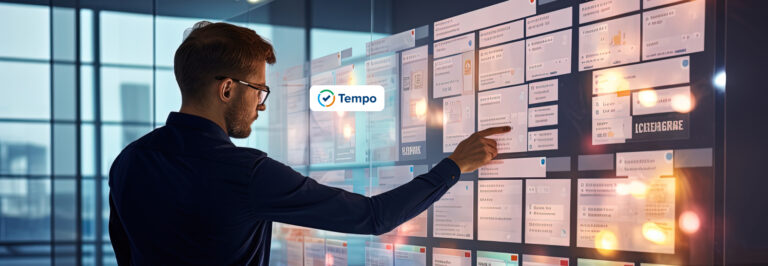While the benefits of the cloud are numerous, it’s crucial to remember that operating expenses related to infrastructure can escalate rapidly. In the context of improving service management, FinOps can be a valuable tool. However, implementing this framework requires close collaboration with the FinOps personas within your organization.
Who are the FinOps personas?
When discussing FinOps with companies, one of the primary inquiries often revolves around the roles of individuals within the organization. Questions arise concerning profiles, responsibilities, team structure, and employee training. To address these concerns effectively, it is essential to have a thorough understanding of the FinOps personas involved in such a strategy.

FinOps Practitioner
This persona is tasked with bridging the gap between business, IT, and finance, facilitating near-real-time decision-making to optimize cloud consumption and drive business value. Their role includes providing support to ensure adherence to principles and equipping teams with the necessary capabilities to foster a FinOps culture.
In addition, this persona is responsible for defining the best cost management practices in the organization, creating visibility and transparency in cost consumption, as well as in forecast monitoring. Efficiency can be measured with indicators such as the assertiveness of defined budgets and forecasts, coverage of reserved resources and efficiency in the purchasing model, as well as coverage of resources with all the tags defined by the organization.
Executives
Executive engagement is crucial for fostering a successful FinOps culture within a company. It is imperative for Infrastructure and Center of Excellence (CCoE) leaders, Chief Technology Officers (CTOs), and Chief Information Officers (CIOs) to actively participate to ensure proper assignment of responsibilities and adherence to budgetary constraints by the teams.
In addition, executives need to ensure that cloud investments are aligned with business objectives, that the use of technology is creating a competitive advantage in the market and that investments are made in the right way. To evaluate the result, it is essential to monitor the company’s revenue and profit growth, in line with investment in technology. One of the metrics that can be used in this case is the transaction per infrastructure cost, for example.
Product Owner
With the assistance of FinOps Practitioners and Executive personas, the Product Owner (PO) endeavors to introduce new products and functionalities to the market with precise cost estimates. Their objective is to expedite product growth, minimize time-to-market, and provide innovative solutions that are cost-efficient.
As mentioned before, a FinOps culture involves alignment and accountability for everyone involved. And for this, the PO’s responsibility for the costs of what is developed is essential.
Engineering and Operations
Of the FinOps personas we’ve discussed so far, this is the first one primarily focused on the technological aspects, and it’s pivotal for ensuring the efficient implementation of solutions.
Unfortunately, it’s common for Engineering and Operations teams to overly prioritize technology without adequately considering costs. This is one of the primary reasons why FinOps is gaining traction: the necessity to shift this mindset.
Engineering and Operations teams need to focus on building and supporting services for the organization, ensuring cost-efficient architectures and the proper sizing of resources, as well as the process of ensuring continuous optimization.
Leadership must take responsibility for fostering accountability among all team members responsible for applications and services, guiding them to identify instances of inefficient resource utilization.
To achieve this, it’s essential to monitor the ratio between revenue and infrastructure costs, along with the cost per service used. Implementing Showback and Chargeback practices is crucial for ensuring the active engagement of engineering and operations teams.
Finance
You can’t discuss FinOps without involving finance professionals. This FinOps persona must collaborate closely with the Practitioner to comprehend consumption history and generate accurate forecasts to support budget planning.
As a FinOps Practitioner, one of the most important aspects of the involvement of the financial structure in FinOps is the assertiveness and transparency of the budget and forecast.
Procurement
One significant change in companies with the adoption of cloud technology has been in the realm of the technology purchasing process. Previously, acquiring new resources required a lengthy process of requesting, obtaining approvals, making purchases, receiving items, and installation, which significantly slowed down business innovation.
With the increased use of the cloud, many companies have gone to the other extreme, with people creating resources without proper accountability. That’s why, in a FinOps strategy, it’s essential to be close to the Procurement sector to guarantee control of consumption, but without impacting on the speed of innovation.
In this new context, Procurement must manage the relationship with cloud providers and ensure good contracts related to consumption, as well as analyzing and planning commitment contracts and volume discounts with providers.
To effectively track results, it is essential to monitor the optimization of license costs and the utilization of licenses by the team. Additionally, monitoring costs by provider is crucial to support FinOps Practitioners in decision-making processes.
FinOps personas: far beyond technology
By gaining a deeper understanding of the FinOps personas, it becomes evident that success in cloud financial management transcends technology alone. Collaboration among FinOps Practitioners, Executives, Product Owners, Engineering, Operations, Finance, and Procurement is indispensable.
With well-defined roles and the dissemination of FinOps principles throughout the organization, the journey to an efficient FinOps strategy accelerates significantly. Consequently, implementing the FinOps Framework will deliver substantially greater value to the company.
e-Core can help your company on this important journey. Get in touch with our experts and boost your FinOps strategy.






![[Blogpost] Webinar FinO_ Practical Solutions
for Cloud Cost Efficiency_](https://www.e-core.com/wp-content/uploads/2024/04/Blogpost-Webinar-FinO_-Practical-Solutions
for-Cloud-Cost-Efficiency_-768x297.webp)
